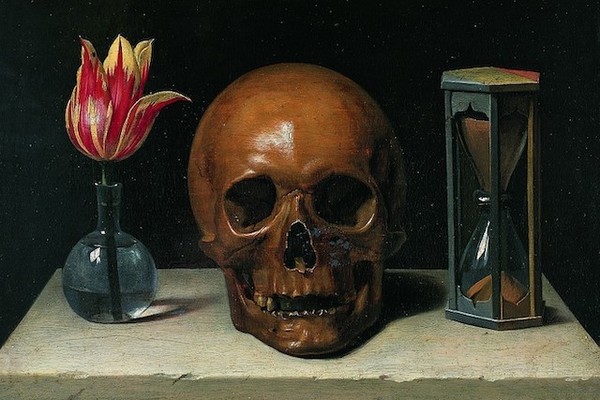Death presents us with perhaps the most formidable challenge to living a good life. Philosophical questions about death abound: what is it to die? Is the state of death separable from the process of dying? If so, which of these — if either — are bad? And how could they be bad for us, if we don’t exist once we die? In this session, we’ll revisit the competing views of the good life we’ve been considering all semester, and ask what they have to say about the role death should play in our thinking about this topic.
Read This:
Longer Lives and the Alleged Tedium of Immortality (Bernard Williams and Samuel Scheffler on Death)
Key Concepts:
- Conditional vs. categorical desires
- Williams’ argument for the tedium of immortality
- Lucretian symmetry
Have questions or thoughts about the reading? Post them on PollEverywhere, and upvote any classmates’ responses that you’d like to cover in class. We’ll address the most upvoted responses during the Q&A part of class.
Do This:
- Complete Map to the Good Life Activity #5 by April 17.
- Complete your Apology essay by April 27.
Pre-Class Questions
Your responses to the following questions are due on Canvas before class. Your top 15 scores of the semester will count toward your final grade.
- Summarize Bernard Williams’ argument for the tedium of immortality in your own words (either in paragraph form, an argument map, or premise-conclusion form) and state the strongest possible objection you can think of. Do you think it is a strong argument overall? Explain.
- What do you hope happens after you die? If you hope for an afterlife, what is it like? If you hope death is the end of life, why? Describe your hope in some detail. What do you think your answer suggests about what you value most in your life now?
Map to the Good Life
This prompt will be one of your options to address in Activity #5 of Map to the Good Life, which will be due on April 17.
In a museum or online, find at least two different works of art that depict death, dying, or an extremely long life. What similarities and differences do you notice in how they present these themes? What ideas does this imply about the role of death in a good life? Do you agree with these? Explain. Be sure to include the titles and artist names for the works of art you discuss.























